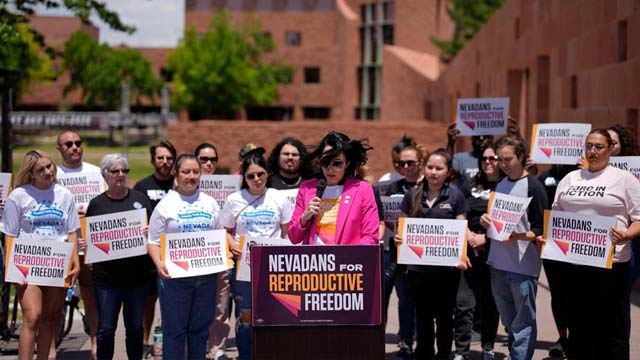
In 2024, voters in several states will weigh in on abortion rights through referendums, with more states potentially joining the list.
States with Confirmed Abortion Ballot Measures
Colorado:
Colorado's top election official confirmed in May that a measure to enshrine abortion protections in the state constitution will appear on the fall ballot. Supporters collected over 225,000 signatures, surpassing the required 124,000. An amendment requires 55% voter approval. A competing measure to ban abortion did not gather enough signatures. Abortion is currently legal at all stages of pregnancy in Colorado.
Florida:
The Florida Supreme Court ruled in April that a measure to legalize abortion until viability could appear on the ballot despite opposition from the state Attorney General. Advocates gathered nearly a million signatures, surpassing the required 892,000. Sixty per cent of voters must approve for it to take effect. Florida currently bans abortion after the first six weeks of pregnancy under a law effective May 1.
Maryland:
Maryland voters will decide whether to enshrine the right to abortion in the state constitution. The state already protects abortion rights by law, with Democrats outnumbering Republicans 2-1. Abortion is allowed in Maryland until viability.
Nevada:
Nevada’s Secretary of State announced in June that a measure to enshrine abortion rights in the state constitution will be on the November ballot. It guarantees abortion access for the first 24 weeks of pregnancy, or later if necessary to protect the pregnant person’s health. This measure requires voter approval in both 2024 and 2026 to change the constitution. Currently, a 1990 law ensures this access.
South Dakota:
South Dakota voters will decide on a measure banning restrictions on abortion in the first trimester of pregnancy. The measure allows regulation in the second trimester and bans in the third trimester with exceptions for the woman's life and health. The state’s top election official confirmed the validity of about 85% of the 55,000 signatures, exceeding the required 35,017. Opponents are suing to remove the initiative from the ballot.
States Where Abortion Could Be on the Ballot
Arizona:
Supporters submitted over 823,000 signatures to place an abortion access measure on the November ballot, more than twice the required amount. Officials are currently verifying the signatures. The measure would allow abortion until fetal viability and later for the woman's health. Arizona currently allows abortion until 15 weeks of pregnancy.
Arkansas:
Proponents must gather nearly 91,000 signatures by Friday to place an amendment allowing abortion in many cases on the November ballot. They reported being 5,800 signatures short as of Wednesday. The measure would bar bans on abortion within the first 20 weeks of pregnancy, with later exceptions for rape, incest, health threats, or non-viable fetuses. Abortion is currently banned in Arkansas with narrow exceptions.
Missouri:
Abortion rights advocates submitted over 380,000 signatures for a measure to guarantee abortion until viability, more than twice the required 171,000. Local officials have until July 30 to verify the signatures. Abortion is currently banned in Missouri with limited exceptions.
Montana:
Proponents turned in nearly twice the required 60,000 signatures for a measure barring government denial of abortion rights before viability or when necessary for health. Counties have until July 19 to verify them, and the Secretary of State will decide by August 22. Abortion is legal until viability under a 1999 Montana Supreme Court ruling.
Nebraska:
Competing measures could appear on the November ballot, with supporters of both submitting more than the required 123,000 signatures. One measure enshrines the right to abortion until viability, while the other codifies the current 12-week ban. A third effort to define embryos as people did not submit petitions. Nebraska currently bans abortion after 12 weeks with some exceptions.
Ballot Efforts That Failed to Gain Traction
Efforts to restrict or ban abortion have failed in some states. Wisconsin's House approved a measure to ban abortion after 14 weeks, but it did not pass the Senate. Iowa lawmakers ended their session without approving a similar measure, and Pennsylvania’s legislature is not expected to add one this year. Louisiana, Maine, and Minnesota saw their measures fail to pass in committees or legislative sessions.





















